

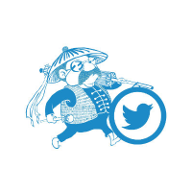







28 October 2018 by Roy Preece
What does language do to you? In ten parts.
Part One
Someone sent me this article ‘Can language slow down time’ and asked if I thought it meant that our cultures were determined by the languages we use. http://www.bbc.com/culture/story/20180806-can-language-slow-down-time?ocid=fbcul
It all started with a study of the Hopi tribe in America in 1939, which seemed to suggest that because the Hopi had no tenses in their language the present and the future were all the same for them. This idea has been taken up more recently to argue that cultures which do linguistically distinguish future from present (Western cultures?) are likely to plan less, save less and even care less for the environment. Or should that logically be the other way around? One senses that perhaps this is another case of the supposed wisdom of aboriginal cultures being adduced to support the case for conservation; a sort of ‘noble savage’ idea. The proposition seems to be that if the future is all part of the present for you then you will feel more responsible for the future. But if the future, like ‘the past’, is another country then maybe we can ignore it. Is there any evidence for this? We shall see.
Part Two
Somehow out of this debate emerged the theory that ‘language can affect how we think and that we can’t think about things our language doesn’t let us talk about’. I’ve always felt this to be self-evident, and have argued so elsewhere: without words we can’t have thoughts, only emotions. But I wonder; when my cat mews because he knows it is his tea time, and knows I will open the door so he can run to his plate and looks up expectantly knowing his food will appear; is he thinking? Does he have ‘words’ in his mind?
Some years ago I was working with a student devising a questionnaire for use with aboriginal people in Taiwan. I suggested a question and she thought a bit and then said ‘You can’t say that in Chinese.’ So we rejected that question. But if you can’t say that in Chinese, can you think it? Could she think it then only because she had learned English? I didn’t ask at the time, but I’d love to know what English-speaking Chinese have to say about it. Of course, when you study a new culture you learn new ideas, and can usually translate them back into your own language; but are there some ideas which you could never have had if you had stayed in your own language? I suspect this works the other way too; Chinese and others have ideas which we can’t express in English. It’s very exciting! It’s well known that there are many French words which can’t be translated exactly into English; we can explain what they mean, but as a joke loses its funniness if it has to be explained, so the words lose their cultural power.
Part Three
A slightly disconcerting aspect of talking with Chinese in English is that they don’t use pronouns for ‘he’ and ‘she’; they have one word ‘ta’. So they may say something like ‘My girl-friend is coming tomorrow; he is very clever.’ When Chinese use ‘ta’ of course they know whether they have in mind a man or a woman, and you may be able to guess, or maybe not. But presumably they have in mind a particular person and not a general idea of male or female as with he or she. The Chinese recognised the limitations of language early on. In the ancient book Hsi Tz’u: ‘The Master said, “The written word does not entirely express the spoken word, nor the spoken word the idea in the mind. Is it then impossible to know the ideas of the Sages?” ‘
Part Four
From my very limited knowledge of Chinese I have always felt that their language cannot be very precise. Having no alphabet, their every word is written with its own character (they are in fact much modified pictograms); many thousands of them, but still only a fraction of the number of English words. Is modern scientific China possible only because of the English language and computers that can print these thousands of characters? To economise on characters, many words have diverse meanings according to context. ‘Tian’ can mean ‘sky’ or ‘day’. I think of sky or day as separate words, and as generalisations, rather than as specific images, which may vary widely, and it seems difficult to me to have the same ‘word’ for both. Other Chinese words are formed by combinations of quite different words. A pictogram of a mother together with that of a child signifies ‘happiness’. Does this mean that Chinese do not think in abstractions as much as English people do; that their thought is more literal? This may find expression in Chinese poetry which often invokes emotion through well-chosen words and poignant descriptions of situations and scenes, leaving the reader to respond sympathetically with feelings which are only implied in the poem itself, and are not analysed at length as in some western poetry. Perhaps it explains E R Hughes’ observation that the Chinese are famous throughout the world for ‘their common sense and matter-of-factness’.
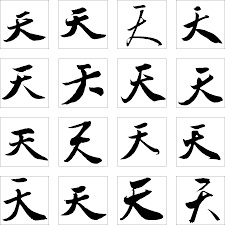
Part Five
Nevertheless most Chinese love their language. Writing it with brush pens has always been a high artistic achievement and they delight in explaining the pictographic details of their characters. I heard a Chinese author recently explain how cold and boring writing in English was compared with the rich experience of using her hard-won and familiar Chinese. The application and attention to detail required to learn to write Chinese may account for the dedication and cleverness of the Chinese people; but at the same time it may historically have restricted technical progress by limiting the development of original concepts in science and abstract ideas in philosophy; and its difficulty left the great majority of people illiterate and so limited the pool of inventive talent. Much argument in Chinese philosophy relies on analogy and metaphor and the ‘logic’ is often not convincing – for example, Kung Sun Lung’s argument that a white horse is not a horse; it is said the Chinese never invented the syllogism, though the Mohist Hsiao Ch’u gets close. Is it fanciful to think that this fondness for metaphor and analogy may be attributed to a pictographic language?

Part Six
Like the Hopi, the Chinese language does not have tenses, but that is not a great problem: ‘I go today’; ‘I go tomorrow’; ‘I go yesterday’ are clear if not always elegant expressions. But has the language affected Chinese culture in the way suggested? Do the Chinese perceive past, present and future differently to us? Certainly the practice of ancestor worship in China suggests a continuity of present and past. Ancestors must regularly be remembered and honoured, and be given ‘sacrifices’ of gifts and food. They are, in a way, still present. They need reassurance that they are not forgotten. This is not mere remembrance, nor even a praying for souls, as in the west. The Li Chi (Record of Rites) elaborates the many benefits to society and to personal development of character through proper attention to the rituals of sacrifice. Hsun Ch’ing wrote that ‘A sacrifice to the dead is a piling up of memories and intentions, of thoughts and longings.’ and ‘A man of refinement turns his thoughts back to the past, does not forget those through whom life has come to him.’
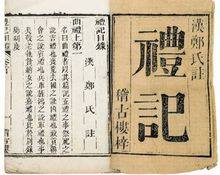
Part Seven
Classical Chinese philosophy was concerned with the present life: Confucianism with how to live a good and harmonious life; Taoism with a ‘philosophical’ attitude of accepting life as it comes, and to live in harmony with nature. Confucius avoided discussion of the unknown world of the spirits, and devoted little attention to the afterlife. The afterlife in China was in any case conceived, as by the ancient Greeks, as an underworld, not a heaven, and was otherwise much like a continuation of life on earth. These two philosophies are sometimes thought to be religions, but they are not. What may appear to be worship of Confucius is in fact paying respect, as to an ancestor. Religion came later in the form of Buddhism from India and much later with Jesuit priests. If we want to know how Chinese language might affect culture we should look to the classical period before Buddhism became widespread.
Part Eight
The philosopher Xun Zi (荀子) advised that ‘The high-minded man is concerned about the matters in his own sphere and does not hanker after the matters in Heaven’s sphere of action.’ Conceptions of our future have two aspects: our future on earth and a future after-life. Which of these was the subject of interest in the Hopi study is not made clear, but we may assume it was care for environment. Xun Zi advises people to concern themselves with ‘human omens’, such as bad agricultural practices, rather than heavenly signs: ‘What about the special sacrifices for rain and then the rain coming? The answer is that there is nothing to it. It would rain all the same if there were no sacrifices.’ It is natural for a people who rely on the living environment to care about the future state of that environment, unless they are influenced by commerce. That the Chinese people have successfully maintained their country from year to year for thousands of years indicates at least a pragmatic if not an imaginative sense of the future. The Chinese attitude seems to have been that if they cared for the present from day to day and did not forget the past then the future would take care of itself as long as the proper ritual sacrifices were made to the ancestors and to Heaven.
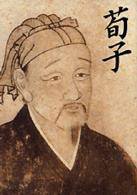
Part Nine
At the start of the fifteenth century China had trading settlements all around the Indian Ocean. They were controlled by a powerful fleet of ships larger than any in the west, notably under the famous admiral Zheng He. Commerce leads to change; to invention and exploration. This was the stimulus for the European empires. In 1424 the new Ming emperor Hong Xi stopped these voyages and his son Xuan De even destroyed the records deciding that: "there would be no need to make a detailed description of his grandfather's sending Zheng He to the Western Ocean.” This is a dramatic example of a culture choosing to turn its face away from the future and from the outside world. It was not the whim of one man, but followed the rules laid down in the Huang Ming Zuxun, the dynastic foundation documents of the first Ming emperor Hongwu. Was this a cultural trait of a people whose language had no tenses and who conceived the future as a continuation of the present, rather than as something new -- or was it simply a determination to reverse the effects of a century of previous Mongol rule?
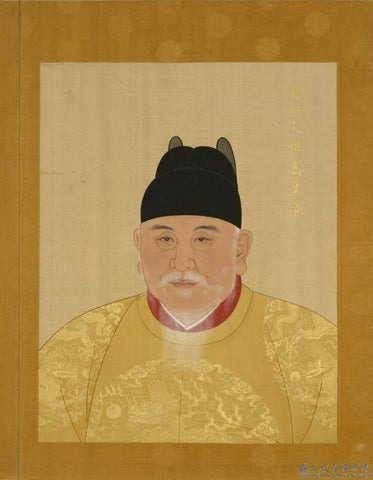
Part Ten
So, has Chinese culture with its matter-of-factness, love of anecdote, metaphor and analogy, of telling stories, concern for stability and continuity, its general inexactness yet great attention to detail, its sceptical attitude to transcendental religion yet importance of ritual, and emphasis on living in the present, been formed by a language with no future or past tense? It’s impossible to say. The BBC article found contradictory examples and no evidence of cause and effect. What do we mean by Chinese culture anyway? What is any culture but a mixture of many influences (except perhaps that of ‘undiscovered’ aboriginal tribes)? The classical culture of China has been influenced by Buddhism; by Mongol conquest; by Catholicism; by Protestantism, by Western exploitation; by Communism and by a form of materialistic capitalism. And the culture of the classical philosophers was very different from the beliefs of the ordinary people whose lives were ruled by superstition. But maybe influences from 2000 years ago -- philosophy, language, legends and historical events – can still be seen to permeate Chinese culture today if we know where to look for them.
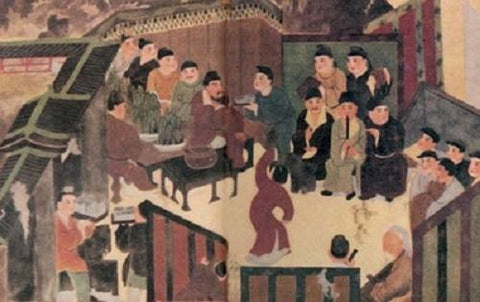
Postscript
I have no qualifications to write this article except a happy acquaintance with several Chinese people, and a little reading. I’m also aware that an attempt to simplify any complex situation is almost certain to be ‘wrong’. So, I’m very happy to be criticised, corrected and to receive other ideas.